By Oscar Rotundo*
On July 28, 2021, Pedro Castillo assumed the presidency of Peru after having defeated the right-wing candidate Keiko Fujimori in the second round by a narrow difference.
Fujimori, daughter of the former president convicted of crimes against humanity and other political and economic crimes, was defeated in her third attempt to become president of the country.
Pedro Castillo is a rural teacher who emerged from the interior of the country with a series of proposals and demands from the system, which were accepted by the popular movement, mainly because a man of humble origins and with few resources to support a campaign raised them. He and his electoral campaign were different from the traditional parties that had the support of the media and the contribution of business groups.
Since the 1993 Constitution, the neoliberal Magna Carta imposed by Alberto Fujimori, it has been very difficult if not impossible for a president to achieve a majority in Congress, because the parties that were in the majority at the time have collapsed and have been replaced by “parties” that are nothing more than “labels”, “franchises” for hire of ambitious leaders and economic groups. This has produced a high degree of political fragmentation that prevents the formation of coalitions that could provide the executive a majority.
Thus, vacancy processes have been the protagonists of this political reality in Peru and for different reasons, several presidents have gone through this procedure.
In the case of Castillo, from the first day of his administration, the Fujimorist-majority Congress and related right-wing parties hindered the formation of ministerial cabinets that had to go through the legislature to obtain a vote of confidence.
One of the errors that can be blamed on now-former President Castillo is having given in to pressure from the right, which never had the intention of co-governing with the executive. Rather, it wanted to articulate from its position of high power and from the judiciary, the maneuvers which, sooner or later, would lead to the same result: the vacancy.
In 10 months the president changed 50 ministers. Only the ministers of Development and Social Inclusion, Foreign Trade and Housing remained in their posts till today. It is precisely about the ministries in charge of their countrymen, the so-called Chotano group (for their place of origin, the city of Chota)
With this panorama of judges and prosecutors that invade politics and become one more political party at the service of the system, the future of the country continues to be lost at a crossroads that is expressed in the following question: What to do with a Congress that has a disapproval rate of 86%? How to get out of the constitutional cage, reformed an enormous number of times in favor the powerful? Will the current president Dina Boluarte finish the presidential term or will she also be vacated when she does not follow the script?
Meanwhile, the old social debts accumulate in the streets and will soon make themselves heard, as well as the struggle of the neglected and stigmatized sectors due to racism and classism, which Castillo tried to represent. He, from the first moment of his electoral triumph, was stigmatized and insulted by the Lima’s conservative circles, well represented by the writer Vargas Llosa.
And since history is written by those who win, today we are witnessing a story constructed by the coup plotters and serial vacanciadores, who voice a discourse as the only truth allowed, but which, as the hours go by, is not as acceptable to the popular sectors. Little by little, the demand for the freedom of Castillo is shouted in the streets and in the movements of the interior of the country, together with the old demand for the closing of the congress and the realization of a Constituent Assembly that will eradicate the Fujimorist cancer that corrupts Institutions and politics of Peru.
A situation that polarizes nationally and internationally
Meanwhile, the government of Mexico from the outset has declared through its president Manuel López Obrador: “We consider it unfortunate that, for the interests of the economic and political elites, since the beginning of the legitimate presidency of Pedro Castillo, an environment of confrontation and hostility against him to the point of leading him to make decisions that have served his adversaries to consummate his dismissal”, and that “I hope human rights are respected and there is democratic stability for the benefit of the people.”
The OAS, through a High Level Group, after the request made by President Castillo for the application of the Inter-American Democratic Charter to collect various complaints and assessments that revealed the fragility of democracy due to the application of Lawfare and of systematic harassment against President Castillo, did not distinguish the vacancy action as a coup circumstance that violated the constitutional order, but rather, taking it out of context, took only Castillo’s declaration in which the Congress was closed, without considering the reasons that could influence to have reached that decision.
On the other hand, the elected president of Brazil Luiz Inacio Lula Da Silva stated, after mentioning Castillo’s arrest, “I hope that all Peruvian political forces work together, within a constructive democratic coexistence, the only way capable of bringing peace and prosperity to the dear and fraternal Peruvian people,” adding “I wish Dina Boluarte success in her task of reconciling the country and leading it on the path of development and social peace.”
Given these statements, it is striking that no one warns that if a president requests the application of the Democratic Charter, it is because he considers imminent, that a new palace coup was being planned similar to the we have seen in Honduras against Manuel Zelaya or against Fernando Lugo in Paraguay.
What constructive democratic coexistence can be expected from these historically identified mafias that since the 90s have been doing their thing?
Congresswoman Katy Ugarte gave her opinion on the situation of Pedro Castillo: “For me he is not a coup plotter, he is a president who has been cornered”
Katy Ugarte, a parliamentarian who entered Congress with the Peru Libre party but is now part of the Magisterial Bloc, spoke out against the adjective of coup leader given to former President Pedro Castillo.
And before these dilemmas we must be clear: According to the Constitution, the head of state is empowered to close Congress in the event that the plenary session denies him a vote of confidence on two consecutive occasions. This had already happened the one time. It would require only a second refusal.
Before the arrival of the OAS mission in Peru, the Prime Minister, Aníbal Torres, announced that he would present a question of confidence for a bill that would restore powers of political counterbalance to the Executive. The confidence motion is a constitutional mechanism by which the Executive can consult Congress on the subject it deems appropriate. If it proceeds to censure or deny a vote of confidence to two cabinets, the president can proceed to dissolve Congress.
What happened is that, given this, the Constitutional Court (TC) issued a precautionary measure in favor of the Congress of the Republic, by which any action by the Executive was suspended, so that it could not dissolve Parliament.
For this reason, Castillo could not execute the measure “because the effects are suspended” until the TC resolves “the substantive issue”, that is, “who interprets, who has the competence to decide if there is a denial of the matter of trust for the purposes of article 134, because that is the underlying issue there, the dissolution of Congress”
Just as the president navigated the waters of vacancy or dismissal, the submarines of the parliamentary coup and the Constitutional Court prepared their torpedoes to sink the president.
The crisis is far from being terminated, as the establishment pretends in the face of the complicit silence of a large part of the international community. The confrontation tends to intensify, because the incident once again demonstrates that formal representative democracy, far from solving the problems of the people, worsens them, and that until the Fujimori Constitution is changed by a sovereign assembly that represents the whole of society, there will be no possibility of building a legitimate democracy.
* International political analyst and editor of the PIA Global team.








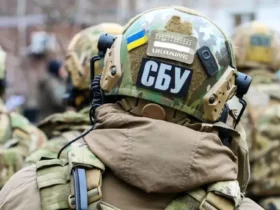
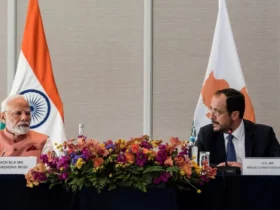
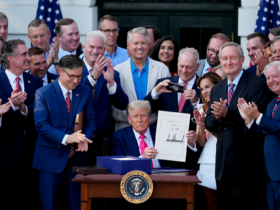
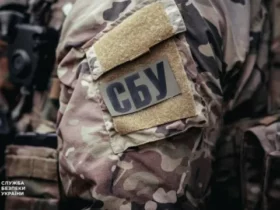
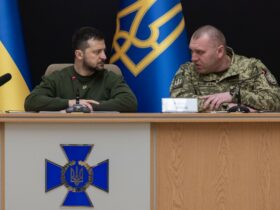




Leave a Reply